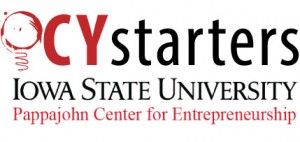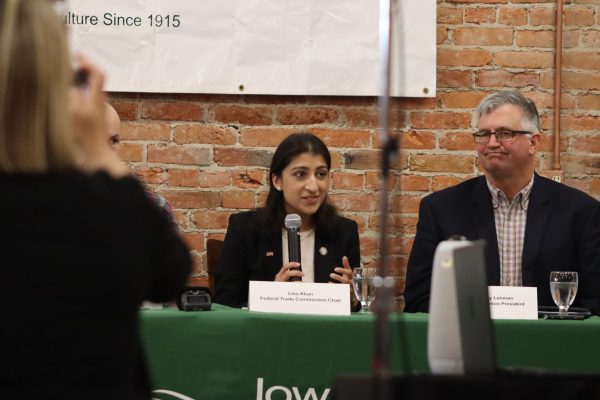Entrepreneur students build businesses through CYstarter

Add Cy-garettes to the prestigious and historic list of Iowa State University inventions.
April 25, 2016
CYstarters give a new possible hope to ISU students.
CYstarter is a new 10-week program that gives students the chance to build their businesses from the ground up. From presenting business pitches to investors to attending educational panels hosted by established entrepreneurs, CYstarter wants its participants to solve problems affecting today’s world.
“We wanted to create an opportunity for students to focus in on their businesses rather than getting an internship or summer job,” said Diana Wright, marketing and programming director of the ISU Pappajohn Center for Entrepreneurship.
Wright said they want students who are trying to solve a big problem, or who “really truly [want] to work on their businesses or have [built up] a lot of momentum.”
With 15 groups participating in the program, it seems students are accepting this challenge. The CYstarter program will allocate between $6,000 and $12,000 to create prototypes, advertising strategies and materials that will bring together each group’s ideas.
“We have one team that did get accepted into CYstarter,” Wright said. “They are trying to solve the worldwide problem of subsistence farming. They are going into different countries where the food security is not like what it is in the U.S.”
Many underdeveloped countries are unable to produce a sufficient amount of food to support their populations, causing widespread famine to debilitate their nations.
Clayton Mooney, who graduated in 2012 with a bachelor’s in English and technical communications, has been working with his teammates, Mikayla Sullivan, senior in global resource systems, and Elise Kendall, senior in environmental studies and global resource systems, to battle this problem with a product known as KinoSol.
“KinoSol units are mobile, solar-powered food dehydrators for fruits, vegetables, insects and grains that [also] have a storage container,” Mooney said.
The trio has been working on KinoSol for the last 18 months. After winning multiple business plan competitions, the three of them were able to acquire enough funds to create more KinoSol prototypes to test all across the world.
“We actually have a partnership in eight different countries and four different continents,” Mooney said. “We want to expand and we want to get more units into the regions that we currently operate in. We believe that every subsistence farmer in need [due to] post-harvest issues should have a KinoSol unit.”
Mooney and his team are confident they have the potential and drive to see their product succeed.
“We have had a big vision since the beginning when KinoSol was just a product for a lone business plan competition,” Mooney said. “We want to help the people who don’t have access to basic necessities and this has (always) been our driving force. We wanted to come up with a product that could very much change the world.”
However, not all participants in the CYstarter program are working on an international scope. Some participants are operating on a smaller, national level that is still changing lives.
Megan Sweere, senior in supply chain management and marketing, created a business plan known as Home Sweet College Home.
“Home Sweet College Home is a subscription college care package that is specifically meant for incoming transfer or first-year students,” Sweere said. “And what makes it unique is that it comes with coupons from local businesses.”
Sweere’s product is meant to provide comfort to students who may not feel comfortable in their new surroundings.
“The whole point of it is to help every student succeed at college by helping them feel that their new community is their home,” Sweere said.
The idea behind Sweere’s product comes from her own experiences as a first-year student.
“My freshman year I had a hard time transitioning to the school,” she said. “It was just weird to be in a [place] I was not familiar with. Students come to college and a lot of them do not succeed their first semester because they don’t have the resources and they don’t feel [they have] support.”
Understanding that this is a common experience among students from around the world, Sweere decided to create a product that could give students a “personal touch” in order to feel at home.
Using an online base for her product, Sweere plans to launch her business this September and eventually expand service to Ames, Iowa City, Cedar Rapids, Dubuque and potentially Des Moines.
Sweere also plans to use her time with CYstarter to learn more about online marketing and how to push her products online.
“I think there’s so much to learn and I’m excited to have CYstarter there to [stand] me up and help lead the way,” Sweere said.
The 10-week program will commence May 23, and if all goes well, the world will receive a product that could help shape it for the better.
















